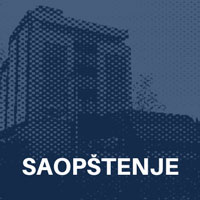Ovčara Case: 14 years waiting for justice
 After 14 years, the first war crimes case before specialized court councils in Serbia came to a close with the new final judgment for the crime at Ovčara near Vukovar. The Humanitarian Law Center (HLC) points out that the trial in this case is one of the best indicators of the ineptitude of Serbian institutions in dealing with the obligation to approach the crimes from the past with responsibility and dedication.
After 14 years, the first war crimes case before specialized court councils in Serbia came to a close with the new final judgment for the crime at Ovčara near Vukovar. The Humanitarian Law Center (HLC) points out that the trial in this case is one of the best indicators of the ineptitude of Serbian institutions in dealing with the obligation to approach the crimes from the past with responsibility and dedication.
The first indictment for the crime at Ovčara was raised in 2003, and up till today, a total of 24 individuals have been indicted before the domestic judiciary. As members of the Vukovar Territorial Defence Unit and the “Leva Supoderica” volunteer unit (both were part of the then Yugoslav National Army – JNA), they were accused of killing 200 prisoners of war on the Ovčara farm near Vukovar on November 20th and 21st, 1991. War prisoners were taken from Vukovar Hospital and, prior to the killings, were physically injured and treated inhumanely. The trial began in March 2004. The initial first instance judgment rendered at the end of 2005 was quashed, and in the repeated trial, a new first instance judgment was brought in 2009. In 2010, the Court of Appeal concluded the proceedings and sentenced some of the defendants to prison sentences ranging from five to 20 years, and acquitted five of them. The Supreme Court of Cassation quashed the final verdict in 2014, and remitted the case to the Court of Appeal for another decision.
The last final judgment of the Court of Appeal, rendered on November 24th 2017 (the general public was notified on January 12th 2018), confirmed the first instance judgment with respect to the accused Miroljub Vujović, Stanko Vujanović, Predrag Milojević (all three sentenced to 20 years) and Goran Mugoš (five years); for Miroslav Đanković and Ivan Atanasijević the sentence was decreased from 20 to 15 years in prison, while Saša Radak’s sentence was reduced to five years in prison. The sentence for Nada Kalaba was increased from nine to 11 years of imprisonment. Milan Vojnović, Jovica Perić, Milan Lančužanin and Predrag Dragović were acquitted. They had been previously sentenced to 15, 13, six and five years in prison respectively. Đorđe Šošić died during the proceedings before the Court of Appeal.
The Ovčara Case was marked by the 14 years duration of the proceedings, which included only direct perpetrators, despite clear indications of the involvement of the JNA commanders. It was also marked by the negligency and superficiality of the work of the court.
The first and only abolition of a final judgment in a war crime case in Serbia contributed to the prolongation of the trial. The reason for the abolition was a decision of the Constitutional Court, which found that the right of the accused to a fair trial had been violated, since the chamber of the Court of Appeal that rendered the final judgment was presided over by a judge who had played multiple procedural roles in the first instance proceedings, therefore implying a suspicion of his bias.
During the trial of high-ranking JNA officers Mileta Mrkšić (sentenced to 20 years in prison) and Veselin Šljivančanin (sentenced to 10 years in prison) before the ICTY, as well as in proceedings in Serbia, numerous facts were found indicating that the JNA was responsible for this crime. Still, all those officers, whose troops took part in the capture of Croats from Vukovar Hospital on November 20th, 1991, and then in their transfer to the Ovčara farm, where severe torture was allowed, and who finally left 200 civilians and prisoners of war to the members of the Territorial Defence and other units whose members subsequently killed them, remained beyond the reach of justice.
In the end, the Court of Appeal has applied a different criterion in this case, which has enabled the defendants to be acquitted on the basis of the same evidence and the same legal provisions for which they had previously been convicted. The court in its statement on the judgment said that an earlier conviction in respect of the responsibility of four of the convicts (Perić, Vojnović, Lančužanin, Dragović), and to a certain extent of another two (Radak, Đanković), was made on the basis of “relatively little” evidence, since the conclusions in some situations were based on the testimony of only one witness/collaborator. Now the Court of Appeal has applied a different criterion, according to which the conclusions in the judgment can be based only on the basis of the statements of both witness/collaborator or if the testimony of one of them were corroborated by other evidence. This has led to the acquittal of four of the convicted and to the drastic reduction of the sentences of two more.
The final epilogue of the Ovčara Case trial in this and other proceedings before the domestic judiciary has been disappointing: out of 24 accused, only 11 of them have been convicted; two indictees died, two of them received the status of cooperating witnesses, and nine of them were finally acquitted of the charges. Throughout all this time, victims’ families have publicly expressed their dissatisfaction over the duration and course of the trial, and many members of the families did not even live long enough to witness its conclusion.
Thus, justice has been only partially satisfied, and after 14 years of a long and exhausting process, the expectations of the families of victims to realize the full truth about the sufferings of their closest relatives and to see those responsible for these crimes adequately punished have not been met. As a paradigmatic example of war crimes trials in Serbia, the Ovčara Case illustrates the very limited extent of justice for victims in Serbia. The HLC therefore calls on the competent authorities in Serbia to adopt a responsible and dedicated approach to their obligation to prosecute those responsible for these most serious crimes. The HLC emphasizes that resolving the legacy of the armed conflicts of the 1990s is not only one of Serbia’s obligations in the process of EU Accession, but also a basic civilized requirement, and a prerequisite for reconciliation in the region and the building of a modern European society.






